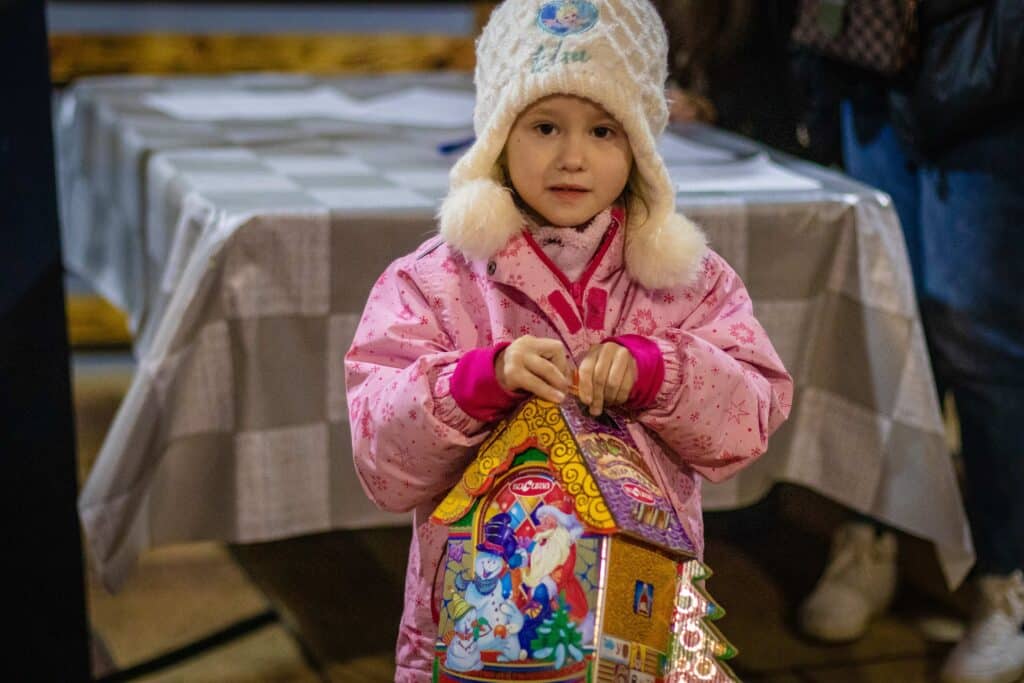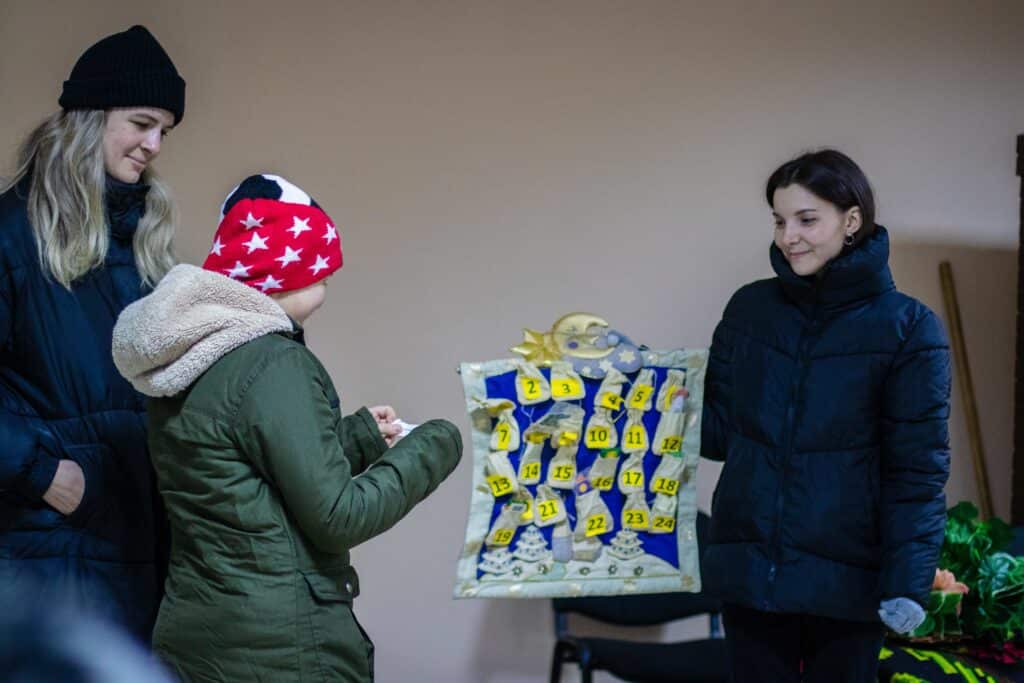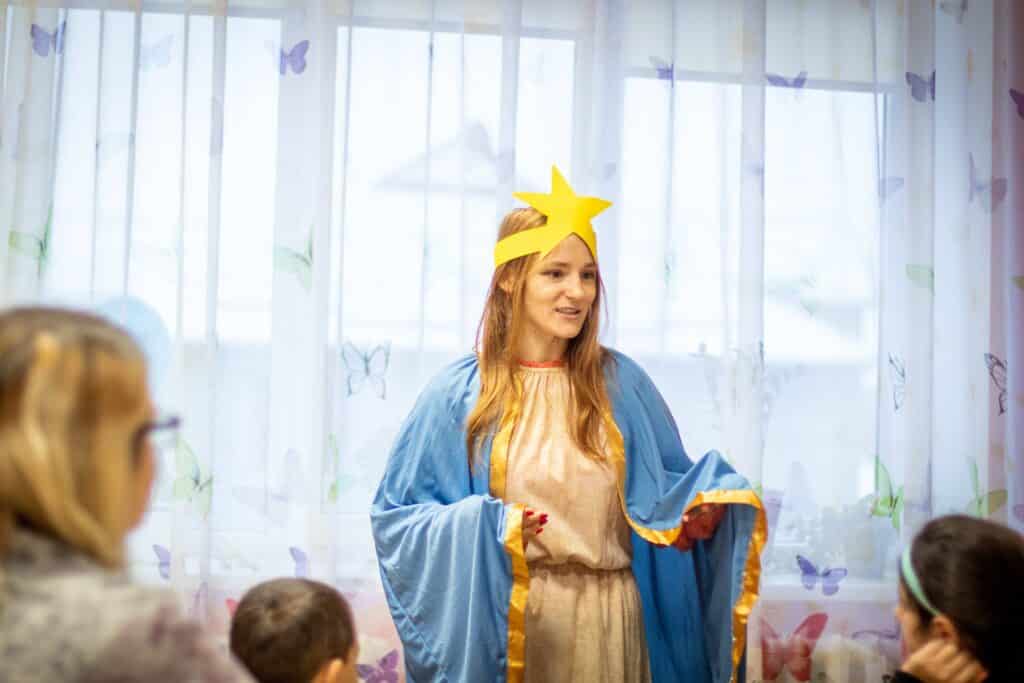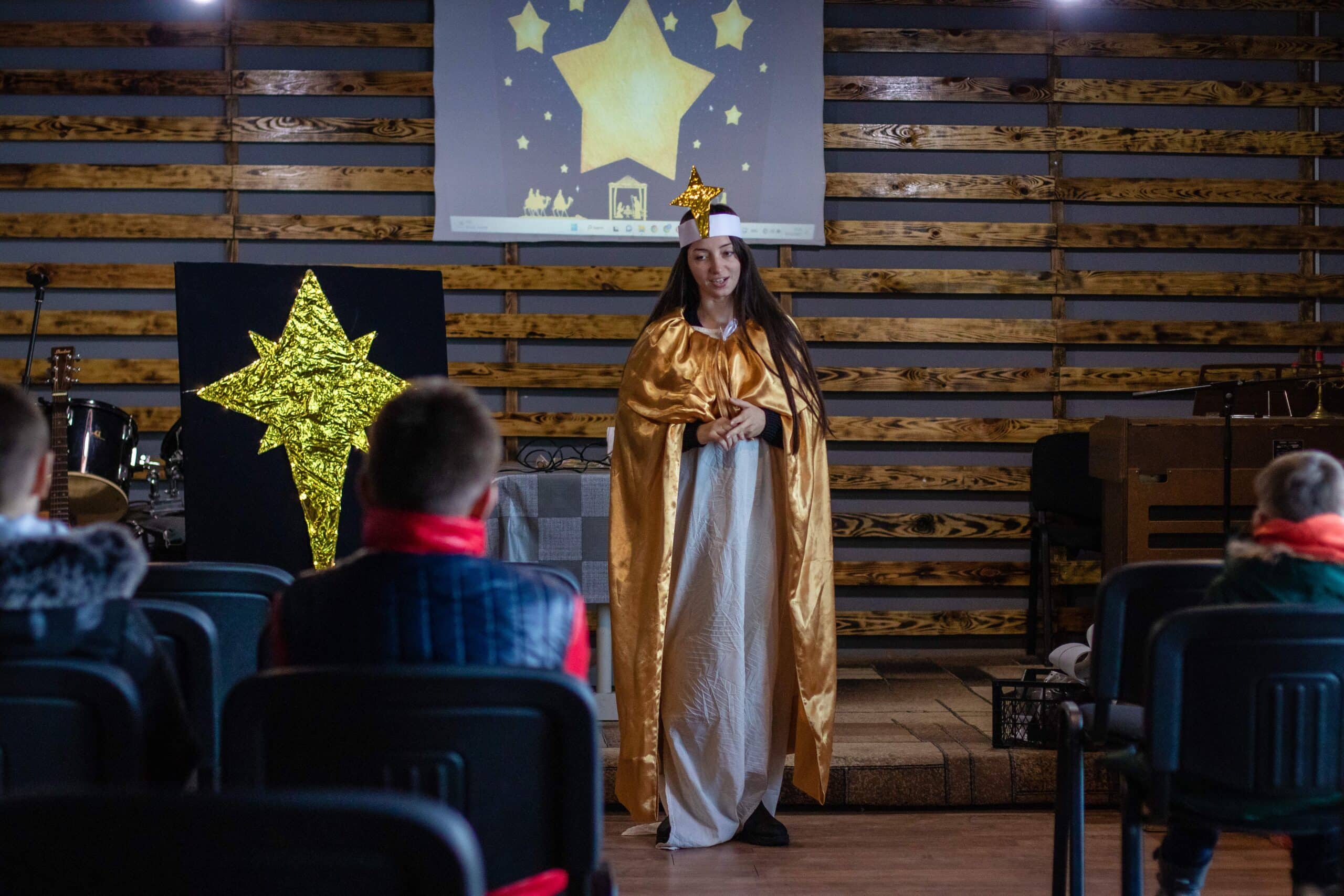Written by Jennifer Sevier, Sponsor and JMI Moldova Volunteer
Christmas is a widely celebrated holiday for Christians in every corner of the globe. While the central meaning of the holiday remains the same for believers of all cultures, the traditions and celebrations vary greatly around the world. Perhaps you’ve wondered what Christmas is like in Moldova. Read along to experience the Christmas season through the lens of a Moldovan.
The Holiday Calendar
Moldovans love to celebrate, and it is often said that winter holidays are celebrated from mid-December through mid-January. Roughly 95% of Moldovans are Eastern Orthodox (a religion that has been around since the 11th century after a split with the Roman Catholic Church over theology and politics), and the other 5% are Protestant. The Moldovan Orthodox Church (and many other Orthodox countries in the east) uses the Julian Calendar for celebrating liturgical events, currently 13 days behind the Gregorian calendar which the US and most of the Western world use. Under the Julian calendar, Christmas Eve is the 6th of January, and Christmas Day is the 7th of January. After the fall of the Soviet Union, Moldova began adopting more and more Western philosophy, and in 2013, officially recognized December 25th as a national holiday along with January 7th. Thus, there are two Christmas Days in Moldova!
The date a particular Moldovan considers Christmas is often related to (i) the geopolitics of their family, (ii) whether they live in one of the handful of larger cities or in one of the many villages, and (iii) their religious affiliation. Because Moldova is made up mostly of small villages that often date back to the 16th century, village life is steeped in tradition, and it is not unusual even for protestant churches and believers in villages to celebrate Christmas Day in January rather than December. And, because the older and younger generations often have differing political and religious viewpoints, if there are protestant believers in the family, sometimes the family honors both dates.

“Mos Craciun”
The Moldovan version of what we know in the US as Santa Claus looks a bit different. There is no Santa, North Pole or flying reindeer. Instead, Moldovan children younger than school age often write letters (with the help of a parent or teacher) to Mos Craciun, the Moldovan version of Santa Claus, about the gift they want. Mos Craciun is roughly translated as Old Man Christmas or Father/Grandfather Christmas depending on the region of the country, and wears a long red robe and often is seen with a long white beard. He delivers the gifts by “magic” with the help of his fairies.
Mos Craciun generally brings children a single gift on New Year’s Day, not on Christmas. Moldovans also do not exchange gifts with friends and family until New Year’s Day. The tradition of a single gift is believed to have originated because of the prevailing poverty in Eastern Europe in the earlier centuries which unfortunately continues, especially in villages, even today. The single gift tradition appears to be followed less in the larger cities. As for the timing of the gift, because the stories of Santa and Mos Craciun had their origins in the good works of St. Nicolas, a Christian who gave gifts to the poor, it is generally believed that the tradition of gift-giving on New Year’s Day rather than Christmas arose from the Soviet Union’s attempt to remove the role of religion from traditions and secularize the culture of the countries then under its rule.
Christmas Eve Traditions
Though rarely seen in the larger cities, in villages, children often spend the afternoon going from house to house singing carols and reciting poems for the villagers about the birth of Christ, where they are typically rewarded for their efforts with candy, colaci (a special type of Christmas bread), or money. For protestant children, caroling on December 24th usually culminates at their local church where a Christmas Eve service is held. Orthodox children carol on January 6th, until the first star is seen in the sky, which signifies to them that it is now Christmas Day. Once the first star appears, they go directly to church for a traditional orthodox service that lasts approximately five hours!

The Big Day
Most children celebrate Christmas with their immediate household by enjoying a traditional meal of racitura (a slow-cooked pork dish that is jelled with its fat and cooked vegetables in a mold and served cold), sarmale (cabbage rolls with rice, vegetables and sometimes meat), perjoale (a type of flat meatball made with minced chicken, potato and vegetables), a variety of vegetables that have typically been stored since their harvest, and fresh baked colaci (a beautiful braided and shaped bread). Because Orthodox Moldovans fast from meat, poultry, eggs, dairy products, fish, oil, and wine for the 40 days before Christmas, their Christmas Day is often highlighted by pork steaks from a pig that has been slaughtered especially for this purpose, in addition to the other traditional dishes.
School’s Out!
Typically, grades 1-9 are off from school from December 24th through January 8th. In high school, exams typically run until the 29th or 30th of December, and this age group has a holiday break from the last day of their exams until around the 15th of January.
 Other Unique Traditions
Other Unique Traditions
In Moldova, New Year’s Day is typically the big family event, with an even bigger celebration. Moldovans working abroad often come home in time for the New Year’s celebration, where the entire extended family is usually together with an even bigger meal, and gift exchanges among family members. After the big meal, families often carol door to door together throughout the villages with songs and poems wishing their friends and neighbors a prosperous harvest and good health in the new year. The carolers traditionally throw seeds and corn kernels as they sing and the more the villager catches, the more prosperous their year is said to be.
JMI Brings Christmas Cheer to Moldova
JMI’s sponsored children are treated to a special Christmas program during December. Most enjoy the program during their monthly sponsorship meeting which includes a story about the birth of Christ, a craft, and usually a small box of candy. If American teams come to Moldova for Christmas (like they will this year!) a few of the villages are even treated to a very special program about the birth of Christ that includes both the Americans and Moldovans, and they typically receive a bag filled with stocking stuffers, fruit and candy.
If you’re a JMI sponsor who would like to make a special Christmas to your child, you can do so at justiceandmercy.org/give-a-gift/





 304 44th Ave. N
304 44th Ave. N

